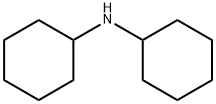PRODUCT Properties
| Melting point: | 20-22 °C (lit.) |
| Boiling point: | 160-161 °C (lit.) |
| Density | 0.948 g/mL at 25 °C (lit.) |
| vapor density | 3.5 (vs air) |
| vapor pressure | 0.98 mm Hg ( 25 °C) |
| refractive index | n |
| Flash point: | 67 °C |
| storage temp. | Store below +30°C. |
| solubility | 40g/l |
| form | Liquid After Melting |
| pka | 16 |
| color | Clear colorless |
| Odor | Like camphor. |
| Relative polarity | 0.509 |
| PH | 6.5 (40g/l, H2O, 20℃) |
| explosive limit | 2-11.2%(V) |
| Odor Type | camphoreous |
| Water Solubility | 3.6 g/100 mL (20 ºC) |
| Sensitive | Hygroscopic |
| Merck | 14,2725 |
| BRN | 906744 |
| Henry's Law Constant | 16.9 at 50.00 °C, 34.4 at 60.00 °C (headspace-GC, Hovorka et al., 2002) |
| Dielectric constant | 15.0(25℃) |
| Exposure limits | TLV-TWA 200 mg/m3 (50 ppm) (ACGIH);
IDLH 3500 ppm (NIOSH). |
| Stability: | Stable. Incompatible with oxidizing agents. Reacts violently with oxidizing agents such as hydrogen peroxide and nitric acid, even at room temperature, to form an explosive material. Hygroscopic. Combustible. |
| Cosmetics Ingredients Functions | PERFUMING |
| InChI | 1S/C6H12O/c7-6-4-2-1-3-5-6/h6-7H,1-5H2 |
| InChIKey | HPXRVTGHNJAIIH-UHFFFAOYSA-N |
| SMILES | OC1CCCCC1 |
| LogP | 1.25 at 25℃ |
| Surface tension | 33.15mN/m at 293.15K |
| CAS DataBase Reference | 108-93-0(CAS DataBase Reference) |
| NIST Chemistry Reference | Cyclohexanol(108-93-0) |
| EPA Substance Registry System | Cyclohexanol (108-93-0) |
Description and Uses
Cyclohexanol is used for the productionof adipic acid and caprolactam for makingnylon. Its phthalate derivatives are used forplasticizers. It is used as a stabilizer for soapsand detergents; as a solvent for lacquers,varnishes, and shellacs; and as a dye solventfor textiles.
Safety
| Symbol(GHS) |   GHS07,GHS09 |
| Signal word | Warning |
| Hazard statements | H302+H312+H332-H315-H319-H335-H411 |
| Precautionary statements | P273-P280-P301+P312-P302+P352+P312-P304+P340+P312-P305+P351+P338 |
| target organs | Respiratory system |
| PPE | Eyeshields, Faceshields, Gloves, type ABEK (EN14387) respirator filter |
| Hazard Codes | Xn |
| Risk Statements | 20/22-37/38 |
| Safety Statements | 24/25 |
| OEB | A |
| OEL | TWA: 50 ppm (200 mg/m3) [skin] |
| RIDADR | NA1993 |
| WGK Germany | 1 |
| RTECS | GV7875000 |
| F | 21 |
| Autoignition Temperature | 572 °F |
| TSCA | TSCA listed |
| HS Code | 2906 12 00 |
| HazardClass | CBL |
| Storage Class | 10 - Combustible liquids |
| Hazard Classifications | Acute Tox. 4 Dermal Acute Tox. 4 Inhalation Acute Tox. 4 Oral Aquatic Chronic 3 Eye Irrit. 2 Skin Irrit. 2 STOT SE 3 |
| Hazardous Substances Data | 108-93-0(Hazardous Substances Data) |
| Toxicity | LD50 orally in rats: 2.06 g/kg (Smyth) |
| IDLA | 400 ppm |
| Excepted Quantities | Non-Hazardous |




